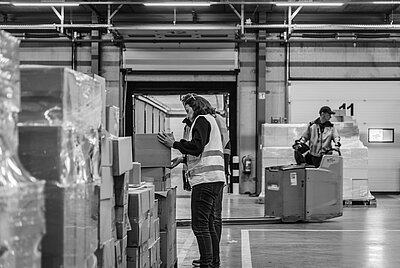Customer experience is your key competition
Customer experience (CX) is the new marketing battlefront. Research suggests that as time is moving on, retailers are competing more and more on customer experience (CX) – not your products or services. In fact, two-thirds of marketers in charge of CX said that their business competes mostly because of it.
Your competition isn’t innovation or prices, product ranges or green credentials. It’s how people experience your brand from start to finish.
Make it great, and it brings big benefits to retailers. Companies with great customer experience can charge more for their products or services and people are willing to pay; because they value how much you value them. Some retailers can charge an additional 16% on products and services, alongside growing their loyalty levels faster than other retailers.
Here in the Netherlands, three brands are leading the way in Europe for customer experience. E-commerce company Coolblue, online retailer Bol.com and lingerie brand Hunkemöller are all managing to blend digital customer experience with in-store customer experience, which sees them competing with web giants like Amazon thanks to their strength in this area.
You only need to look at Coolblue’s swathes of rave reviews to see how much their customers appreciate what they do and how they do it. What’s also worth noting, is how they respond to their customers when things haven’t gone so well.
It’s a masterclass in using customer experience as your differentiator.
Innovation is customer-led
Would it surprise you to learn that 50% of innovation comes from customers? If you are surprised, then you’re not alone. Most business leaders and decision makers highly underestimate the power of customers to innovate and show you what you need to do next.
Tim Schweisfurth, Associate Professor in High-Tech Business at the University of Twente, says that the problem with most customer-led innovation is that it’s a secret.
“User innovation is a largely invisible phenomenon because people rarely share their work. If their problem with the original product is solved, they usually stop. Not everyone sees that many other people might actually benefit from their innovations.”
Retailers need to find ways of connecting to their customers, to listen closely to what they need and want, and in some cases, what they are already doing or have done to solve their own problems.
Customer surveys, focus groups, open feedback channels and sifting through online reviews are an integral part of this process. But the value added is worthwhile for retailers.
SurveyMonkey did its own research on innovation and discovered that “ninety percent of consumer respondents said 'listening to customers' is the most important way companies can fuel innovation.”
And it’s not just about being futuristic or ahead of the game. Customers simply want solutions that will improve their lives or provide better value for money. In a nutshell, answering genuine problems rather than indulging in vanity projects. You don’t have to re-invent the wheel to innovate successfully.
Go for relevance over reach
Most retail marketing campaigns are focussed on marketing to everyone, wherever they are. Why? Because large amounts of data are easy to work with and easier to roll out to your audience of ‘everyone’.
But if you want success from your marketing campaigns, there is evidence to suggest that localising your data for campaigns that are smaller, but more specific, is much more profitable.
Context is everything when it comes to your data. If you saw a huge uptick in winter coat sales during August, for example, you might be tempted to run with a campaign for winter coats the following summer. But where were these sales coming from? Were they centred around a certain weather event, in a certain location?
Looking at your granular data can help you to deliver far more specific, and successful, marketing messages than just running with what your big data tells you.
Dutch-based grocery store Albert Heijn runs localised campaigns in five cities during Ramadan (a period of fasting for Muslims) – running an open air Iftar (the moment when Muslims break their fast) in each city to bring the community together.
By implementing localised campaigns in the cities where many Dutch Muslims live, in-store and online, they can reach their audience in a meaningful way - deepening their connection with their customers and potential customers.
Relevance is far more powerful with your customers than far-reaching campaigns and messages.
When it comes to putting the focus back on your customer, it essentially comes down to knowing your audience. If you invest wisely, your brand will reap the benefits.
If you want to put the spotlight back on your customers, then speak to our team on +31 (0) 88 494 20 80 or email us at online@worldpack.eu


